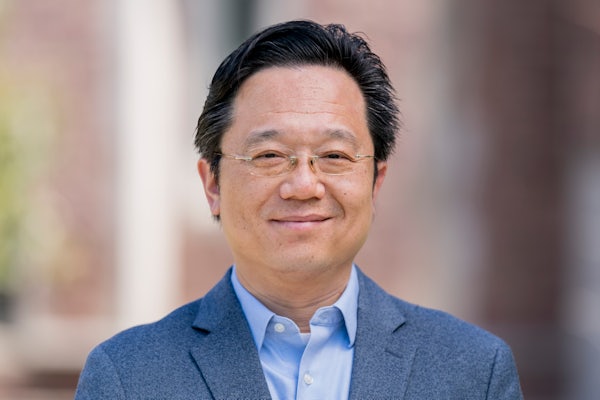Lu named IEEE Fellow
Chenyang Lu, the Fullgraf Professor in the School of Engineering & Applied Science at Washington University in St. Louis, has been named a IEEE Fellow

Lu, professor of computer science & engineering, is recognized for his contributions to adaptive real-time computing systems. The IEEE Grade of Fellow is conferred by the IEEE Board of Directors upon a person with an outstanding record of accomplishments in any of the IEEE fields of interest. The total number selected in any one year cannot exceed one-tenth of 1 percent of the total voting membership. IEEE Fellow is the highest grade of membership and is recognized by the technical community as a prestigious honor and an important career achievement.
Real-time systems are an important class of computing systems with stringent real-time performance requirements such as those controlling automobiles and industrial automation. As real-time systems become increasingly open and interconnected in unpredictable environments, they must maintain real-time performance when system workload changes dynamically. Traditional approaches of real-time computing cannot handle unpredictable environments effectively, because they rely on a priori knowledge of the workload to provide real-time performance assurance.
Lu pioneered a new approach to design adaptive real-time systems based on dynamic system models and feedback control techniques. He developed open-source middleware systems that provide real-time performance control services for different applications. His work played a crucial role in transforming ad hoc designs of adaptive real-time systems to a sound engineering methodology and system architecture. His other contributions on real-time systems also include industrial wireless sensor-actuator networks and real-time virtualization technology that has been incorporated into mainstream system software used worldwide.
Lu has made pioneering contributions to the field of wireless health by developing and piloting one of the world's first large-scale clinical monitoring systems that collects real-time vital signs from patients using wireless sensor networks. In collaboration with Washington University School of Medicine, Lu piloted the wireless monitoring system through a 14-month clinical trial of the system in six hospital wards of Barnes-Jewish Hospital in St. Louis. His work demonstrated the feasibility of reliable vital sign collection using a wireless sensor network integrated with hospital IT infrastructure. Lu is working toward the vision of wireless health where the convergence of wireless sensors, mobile computing, data mining and electronic medical records will lead to enhanced quality of care for patients in hospitals as well as for outpatients.
Lu, director of the Cyber-Physical Systems Laboratory (CPSL), has made important contributions to wireless structural monitoring and control systems relating to the growing problem of deteriorating civil infrastructure in the U.S. and the world.
Wireless sensor networks provide a compelling platform for long-term structural health monitoring due to their low installation cost in civil infrastructure. In collaboration with civil engineering researchers, Lu proposed a cyber-physical co-design approach to develop power-efficient structural health monitoring systems based on wireless sensor networks. More recently, he developed wireless systems to control structures, such as bridges, based on real-time measurements from wireless sensors attached to the structure so that they survive natural disasters.
Lu earned a doctorate from University of Virginia in 2001, a master's degree from Chinese Academy of Sciences in 1997, and a bachelor's degree from University of Science and Technology of China in 1995, all in computer science
Back to News


